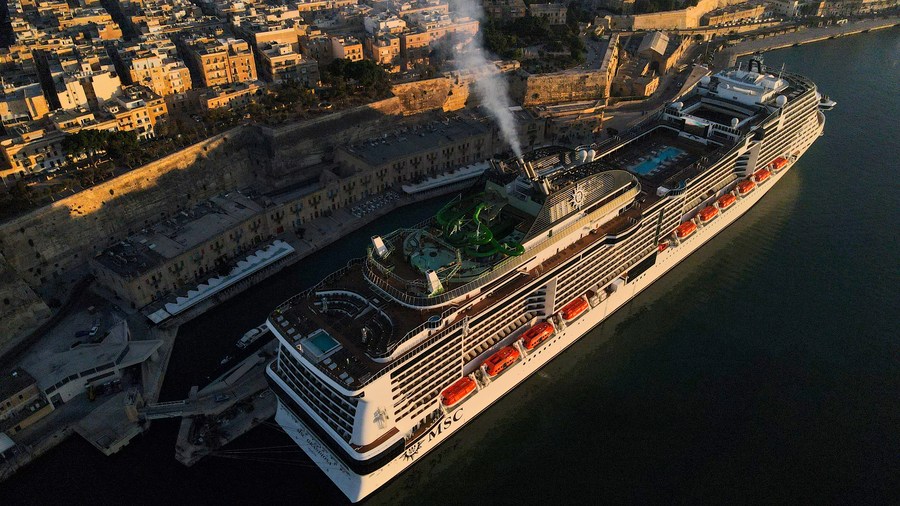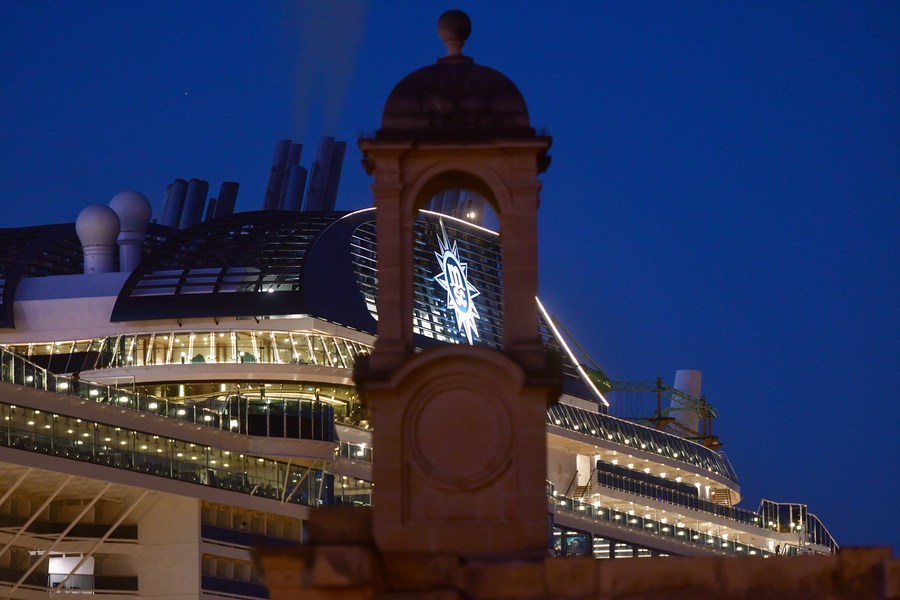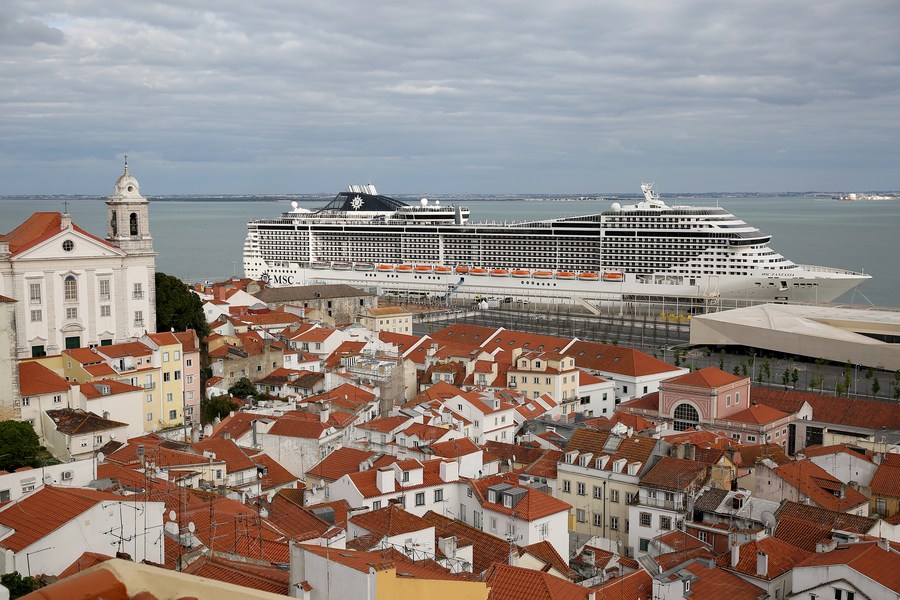 Aerial photo taken on Aug. 21, 2020 shows cruise ship MSC Grandiosa sailing into the Port of Valletta, Malta. (Photo by Jonathan Borg/Xinhua)
Aerial photo taken on Aug. 21, 2020 shows cruise ship MSC Grandiosa sailing into the Port of Valletta, Malta. (Photo by Jonathan Borg/Xinhua)
Analysts said that the motives of cruise operators likely go beyond the revenue that partially-full cruises represent.
"Part of it is the cruise operators' image: by operating now they create an image of reliability and business as usual," Marina Lalli, president of Federturismo, the arm of the Italian industrial association Confindustria that focuses on the tourism sector, told Xinhua. "It's also easier to keep the ships ready when they are in use."
ROME, Feb. 27 (Xinhua) -- After shuttering for most of the coronavirus pandemic, Italy's once-thriving cruise industry is now testing the waters in hopes that the sector will be able to ramp up to full force once the pandemic fades.
MSC Cruises, the world's largest independent cruise operator, was the first cruise company to begin operations in Italy this year, launching a cruise between Italy and Malta in late January. Others are following suit, with Costa Cruises announcing it will restart operations next month.
A cruise vacation has the potential to be particularly high-risk during a pandemic, given a ship's closed spaces, frequent exposure to the same groups of people, and the difficulty of isolating potentially infected individuals on board.
An official from MSC Cruises told Xinhua that during the pandemic the company is going through great efforts to ensure the safety of passengers, including pre-cruise health screenings, regular cleaning of areas of the ship frequented by passengers and crew, and taking sail well below maximum passenger capacity to make it easier for those on board to social distance.

Cruise ship MSC Grandiosa sails into the Port of Valletta, Malta, Aug. 21, 2020. (Photo by Jonathan Borg/Xinhua)
According to Annalisa De Angelis, an independent travel consultant based in Rome, cruise vacations will likely remain a niche industry under the current conditions, since many would-be cruise passengers are unlikely to take a cruise until coronavirus risks have diminished.
"Almost everyone is tired of staying at home and many people are dreaming of taking a vacation somewhere, but I have heard of very few inquiries into cruises in the last year," De Angelis told Xinhua.
"Because of the pandemic, the ideal vacation has become something in wide-open spaces and fresh air. A cruise that may have seemed exotic or romantic before the pandemic probably seems cramped and risky under the current circumstances."
Gianfranco Lorenzo, head of research at the Center for Touristic Studies in Florence, agreed, saying the industry "will see too little demand" from potential passengers to make a difference in the companies' bottom line.
But other analysts said that the motives of cruise operators likely go beyond the revenue that partially-full cruises represent.

The MSC Fantasia cruise ship is seen at the port in Lisbon, Portugal, March 24, 2020. (Photo by Pedro Fiuza/Xinhua)
"Part of it is the cruise operators' image: by operating now they create an image of reliability and business as usual," Marina Lalli, president of Federturismo, the arm of the Italian industrial association Confindustria that focuses on the tourism sector, told Xinhua. "It's also easier to keep the ships ready when they are in use."
Lalli went on: "The cruise companies are savvy and would not restart operations unless the plan was studied and it made sense for them from a business perspective."
Lorenzo said that under normal circumstances the cruise industry is an "important, though relatively small" part of the country's large tourism industry, serving around 13 million tourists a year before the pandemic. He predicted the sector would make a comeback after the pandemic.
"The setbacks to the cruise industry during the pandemic are part of a broader trend that has hurt the entire tourism sector," he said. "Hotels, restaurants, tour agencies, bars. Everyone is suffering right now." ■




